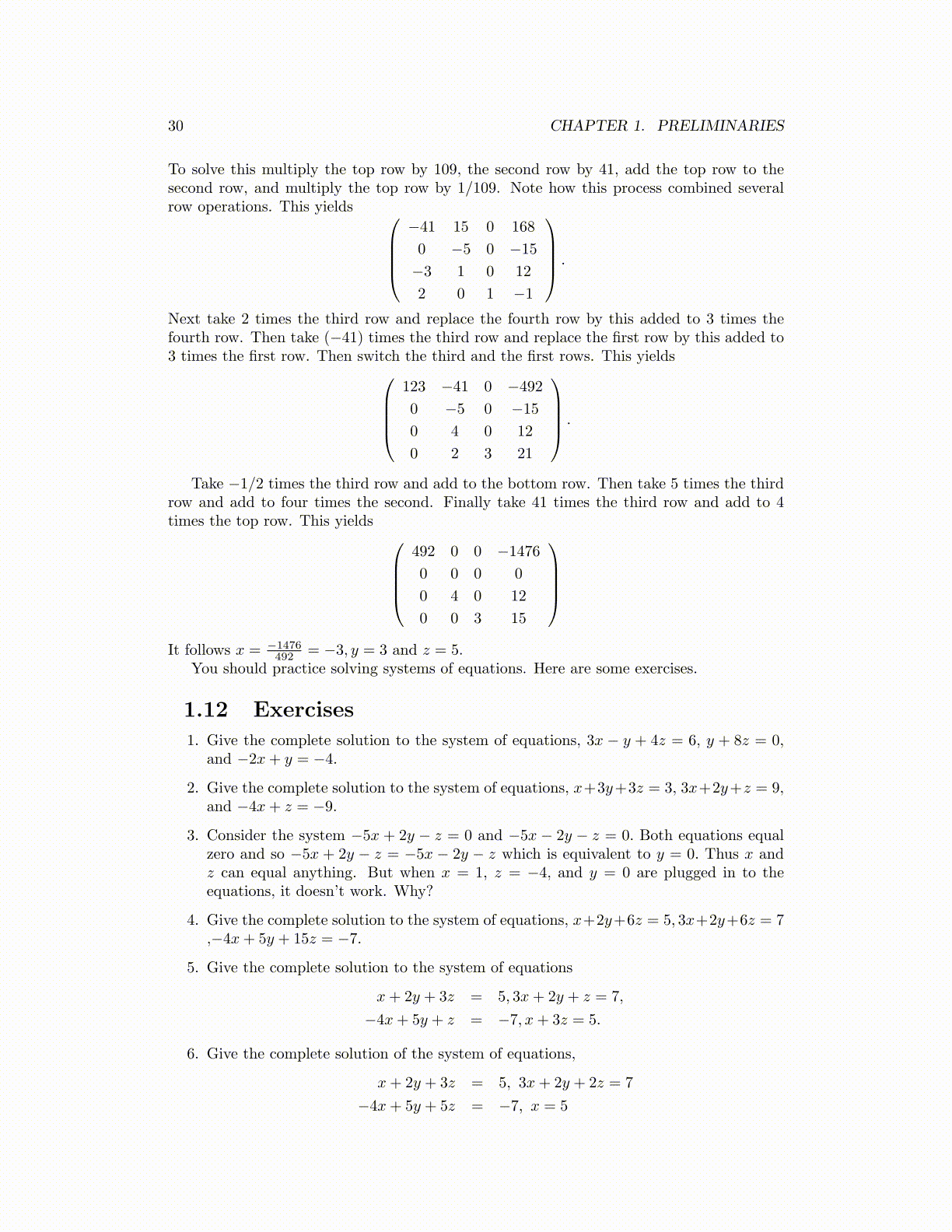
30 CHAPTER 1. PRELIMINARIES
To solve this multiply the top row by 109, the second row by 41, add the top row to thesecond row, and multiply the top row by 1/109. Note how this process combined severalrow operations. This yields
−41 15 0 168
0 −5 0 −15
−3 1 0 12
2 0 1 −1
.
Next take 2 times the third row and replace the fourth row by this added to 3 times thefourth row. Then take (−41) times the third row and replace the first row by this added to3 times the first row. Then switch the third and the first rows. This yields
123 −41 0 −492
0 −5 0 −15
0 4 0 12
0 2 3 21
.
Take −1/2 times the third row and add to the bottom row. Then take 5 times the thirdrow and add to four times the second. Finally take 41 times the third row and add to 4times the top row. This yields
492 0 0 −1476
0 0 0 0
0 4 0 12
0 0 3 15
It follows x = −1476
492 = −3, y = 3 and z = 5.You should practice solving systems of equations. Here are some exercises.
1.12 Exercises
1. Give the complete solution to the system of equations, 3x − y + 4z = 6, y + 8z = 0,and −2x+ y = −4.
2. Give the complete solution to the system of equations, x+3y+3z = 3, 3x+2y+z = 9,and −4x+ z = −9.
3. Consider the system −5x + 2y − z = 0 and −5x − 2y − z = 0. Both equations equalzero and so −5x + 2y − z = −5x − 2y − z which is equivalent to y = 0. Thus x andz can equal anything. But when x = 1, z = −4, and y = 0 are plugged in to theequations, it doesn’t work. Why?
4. Give the complete solution to the system of equations, x+2y+6z = 5, 3x+2y+6z = 7,−4x+ 5y + 15z = −7.
5. Give the complete solution to the system of equations
x+ 2y + 3z = 5, 3x+ 2y + z = 7,
−4x+ 5y + z = −7, x+ 3z = 5.
6. Give the complete solution of the system of equations,
x+ 2y + 3z = 5, 3x+ 2y + 2z = 7
−4x+ 5y + 5z = −7, x = 5